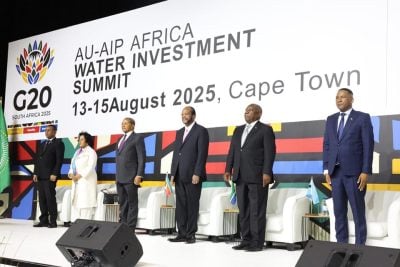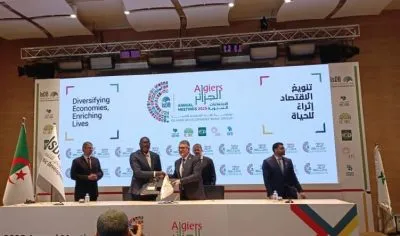This article was produced with the support of Standard Bank Group
Africa’s biggest bank by assets, Standard Bank has announced that it will invest $10 million to the African Women Impact Fund (AWIF) in support of women fund managers with businesses in Africa. The announcement was made at the G20 Empowerment of Women Working Group (EWWG) Women to Africa event hosted in partnership with Standard Bank and the Department of Women, Youth and Persons with Disabilities (DWYPD) at the Inanda Club in Sandton.
“We are proud to be at the forefront of this initiative,” said Luvuyo Masinda, Chief Executive of Corporate and Investment Banking at Standard Bank during the announcement speech at the event. “Our focus is on driving sustainable growth across Africa by mobilising capital for women-owned businesses. By strengthening the role of women as fund managers and decision makers, we are helping expand access to finance, unlock opportunities and drive growth.,” said Masinda.
The AWIF is a Pan-African gender-lens initiative of the UN Economic Commission of Africa (“ECA”), UN Women, the African Union Commission (“AUC”), under the stewardship of the African Women Leadership Network (“AWLN”). In operationalising the program, AWLN has collaborated with the Standard Bank Group as the lead sponsor and promoter, RisCura Invest as the investment manager and provider of fund manager incubation services, and MiDA Advisors as the strategic advisor.
The AWIF was launched in response to the African Union’s Agenda 2063 and the UN’s Sustainable Development Goals 5 and 8 – which target gender equality, decent work and economic growth to address the $42 billion funding gap experienced by women entrepreneurs on the continent
According to the IFC report, Gender and Investing: Women Fund Managers and Capital Allocation Trends, female fund investment managers are two times more likely to invest in women-led businesses which can create a ripple effect and accelerate the financial inclusion of women. AWIF is a scalable and sustainable platform that empowers women as fund managers and creates opportunities for investing into women-owned or women-led enterprises through market-based approaches.
This AWIF’s approach and strategy allows for the private sector to play a stronger role in achieving inclusive and sustainable growth in developing countries. “This is the reason we must be intentional about gender-focused investing and ensure that women are well represented in decision-making roles within the investment management industry,” said Lindeka Dzedze Standard Bank’s Executive Head of Strategic Partnerships Global Markets & Chair of the African Women Impact Fund (AWIF) commenting in response to the bank’s pledge.
The G20 Women to Africa event was a platform for strategic, action driven dialogue on gender equality and financial inclusion. It recognised key ecosystem players who are vital in shifting institutional power and was a sector-wide call-to-action for commitments and partnerships involving diverse stakeholders from public, private, and civil society sectors.
Commenting on the bank’s announcement, Minister Chikunga (DWYPD) said: “We are proud to witness key public-private partnerships like this one, which move beyond dialogue and translate into strategic, sustainable solutions. It is through collaboration that a greater potential for success and shared benefits for our communities and country can be achieved.”
AWIF is a private-public partnership that recognises women are essential to Africa’s social and economic transformation. Its strategy calls for actions to accelerate the empowerment of women and close multi-sectoral disparities. Through its ability to work and develop small managers who otherwise go untapped by larger institutions, the AWIF’s reach of fund managers, and the number of potential SME’s is a powerful multiplier effect that speaks to economic transformations at a macro level.

 Sign in with Google
Sign in with Google 



